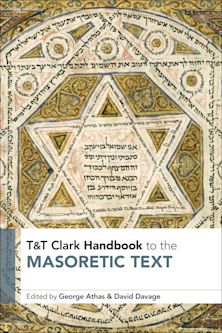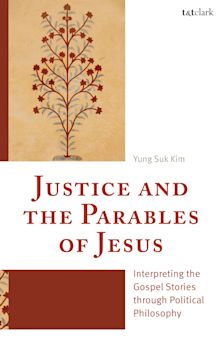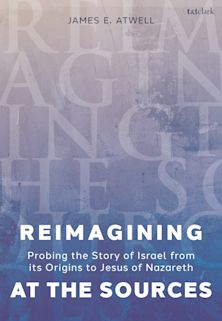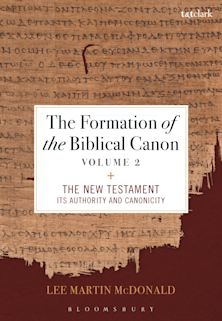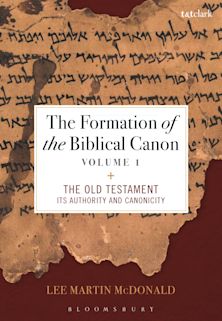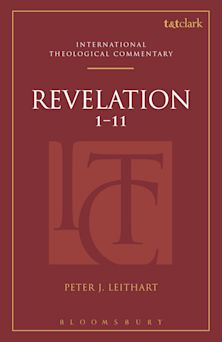- Home
- ACADEMIC
- Biblical Studies
- Biblical Interpretation
- Two Faiths, One Covenant?
Two Faiths, One Covenant?
Jewish and Christian Identity in the Presence of the Other
Eugene B. Korn (Anthology Editor) , John T. Pawlikowski (Anthology Editor) , Dianne Bergant (Contributor) , Mary C. Boys (Contributor) , Yehuda Gellman (Contributor) , Lenn E. Goodman (Contributor) , Edward Kessler (Contributor) , Steven J. McMichael (Contributor) , David Novak (Contributor) , Michael A. Signer (Contributor) , John T. Pawlikowski (Contributor)
Two Faiths, One Covenant?
Jewish and Christian Identity in the Presence of the Other
Eugene B. Korn (Anthology Editor) , John T. Pawlikowski (Anthology Editor) , Dianne Bergant (Contributor) , Mary C. Boys (Contributor) , Yehuda Gellman (Contributor) , Lenn E. Goodman (Contributor) , Edward Kessler (Contributor) , Steven J. McMichael (Contributor) , David Novak (Contributor) , Michael A. Signer (Contributor) , John T. Pawlikowski (Contributor)
This product is usually dispatched within 2-4 weeks
- Delivery and returns info
-
Flat rate of $10.00 for shipping anywhere in Australia
You must sign in to add this item to your wishlist. Please sign in or create an account
Description
Judaism and Christianity are religions bound together by their claims to the same biblical covenant initiated by God with Abraham and his descendants. Yet, despite the inseparable connection between the election of Israel and that of the church, between the 'old' and the 'new' covenant, this shared spiritual patrimony has been the source of a type of violent sibling rivalry competing for the same paternal love and inherited entitlement. God, it seemed, had but one blessing to bestow. It could be given to either Jacob or Esau-but not both. In the twenty-first century, however, Jews and Christians are challenged to reconsider their theological assumptions by two inescapable truths: the moral tragedy of the holocaust demands that Christian thinkers acknowledge the violent effects of theologically de-legitimizing Jews and Judaism, and the pervasive reality of cultural and religious pluralism calls both Christian and Jewish theologians to rethink the covenant in the presence of the Other. Two Faiths, One Covenant? Jewish and Christian Identity in the Presence of the Other is a breakthrough work that embraces this contemporary challenge and charts a path toward fruitful interfaith dialogue. The Christian and Jewish theologians in this book explore the ways that both religions have understood the covenant in biblical, rabbinic, medieval, and modern religious writings and reflect on how the covenant can serve as a reservoir for a positive theological relationship between Christianity and Judaism-not merely one of non-belligerent tolerance, but of respect and theological pluralism, however limited.
Table of Contents
Part 2 Part I: The Binding of Isaac
Chapter 3 Bound by the Bible: Jews, Christians, and the Binding of Isaac
Chapter 4 The Binding of Isaac: Hermeneutical Reflections
Chapter 5 The Akedah and Covenant Today
Part 6 Part II: The Covenant in History
Chapter 7 The Covenant in Patristic and Medieval Christian Theology
Chapter 8 The Covenant in Rabbinic Thought
Chapter 9 The Covenant in Contemporary Eccelesial Documents
Chapter 10 The Covenant in Recent Theological Statements
Chapter 11 The Covenant and Religious Ethics Today
Part 12 Part III: The Covenant and Religious Pluralism
Chapter 13 One God, Many Faiths: A Jewish Theology of Covenantal Pluralism
Chapter 14 Jews and Christians: Their Covenantal Relationship in the American Context
Product details
| Published | 26 Nov 2004 |
|---|---|
| Format | Paperback |
| Edition | 1st |
| Extent | 184 |
| ISBN | 9780742532281 |
| Imprint | Sheed & Ward |
| Dimensions | 227 x 152 mm |
| Series | The Bernardin Center Series |
| Publisher | Bloomsbury Publishing |
About the contributors
Reviews
-
Unknown to the vast majority of Jews and Christians, unprecedented and profound collaborative study has been occurring among Christian and Jewish academicians for several years. This collection, a wonderful illustration of that interfaith research, offers important new insights into the meaning of "covenant" -a pivotal concept for Jewish and Christian self-understanding and for understanding between the two communities as well.
Philip A. Cunningham, Executive Director, Center for Christian-Jewish Learning at Boston College
-
Jewish-Christian dialogue has entered a new age, and Two Faiths, One Covenant? is one of the very best guides to what is new in this age. The age of simply "getting along" has passed. It is time, now, to open our hearts and proclaim and discuss our ultimate beliefs: Who is the God to whom we pray? And what covenant binds us to this God and to our co-religionists? Pawlikowski and Korn have gathered an exceptional group of Jewish and Christian scholars to examine what covenant has meant in the Jewish and Christian traditions, and what covenant is coming to mean now in this new age. Readers will discover that, after the chaos of the 20th century, God speaks again strongly to these tradition's leading theologians, but that God also speaks now in ways that were rarely heard throughout the modern period. Be prepared for surprises!
Peter Ochs, University of Virginia
-
Ever since Pope John Paul II reminded Christians that God's covenant with the Jewish people has never been revoked, many scholars have pondered both the meaning and consequences of this affirmation. In this volume, both Jewish and Christian thinkers take us deeper and provocatively into this mystery, not with the solution to the puzzle but with the faith-filled attraction as to how we - Jews and Christians - might understand ourselves better and more lovingly because we have had the Holy One revealed to us through the wisdom of the other.
Rev. Michael McGarry, C.S.P., Rector, Tantur Ecumenical Institute, Jerusalem
-
One of the most divisive themes in Jewish/Christian relations through the centuries-covenant-becomes, in these penetrating essays by Jewish and Christian colleagues, ground and promise for deepening and furthering dialogue and mutual understanding. And, not only that: the theme, we are shown, not only allows for religious diversity; it requires it. A remarkable achievement.
Walter J. Harrelson, Distinguished Professor of Hebrew Bible emeritus, Vanderbilt Divinity School
-
In contemporary dialogue, Jewish and Christian theologies of "covenant" has become a most important topic. By exploring the historical concepts, their transformations, and modern challenges to them, the essays in this volume push the conversation forward in critical and thought- provoking ways. Any discussion of covenant in the context of dialogue will need to engage deeply with this book.
Ruth Langer, Boston College












